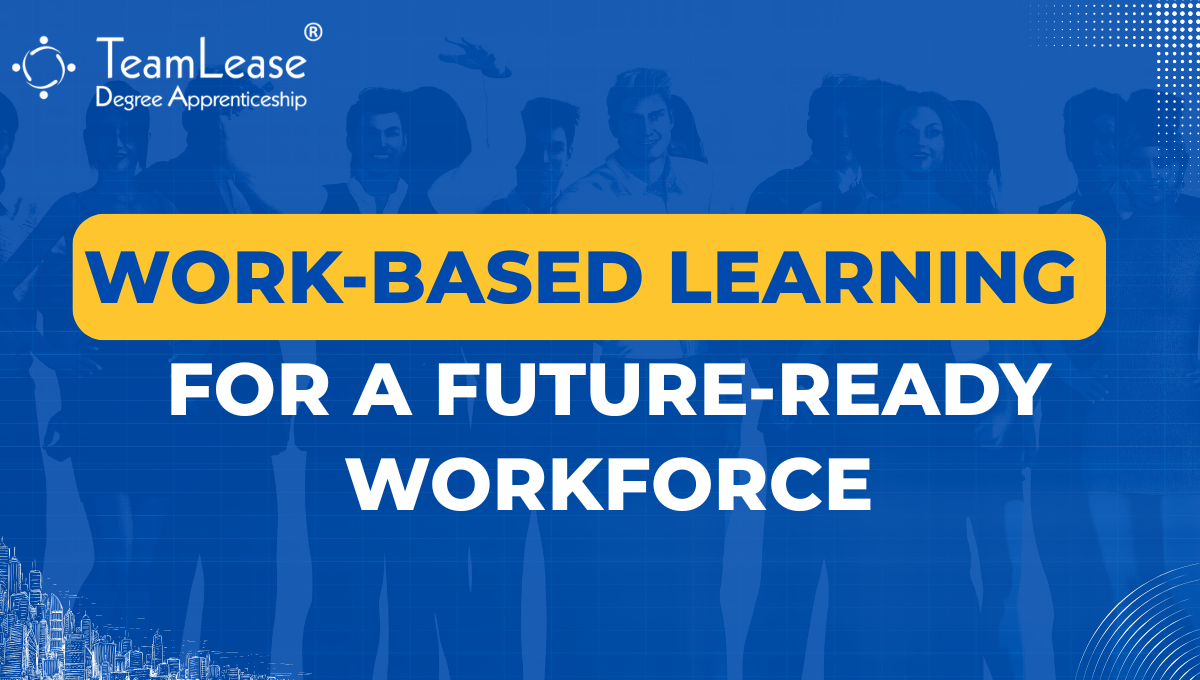In 2021, India marked a historic achievement by exporting more software than Saudi Arabia exported oil with Karnataka playing a significant role in this achievement. This success stemmed from the state’s foresight in nurturing technology skills since the 1980s, which attracted numerous software employers.
Now, Karnataka stands on the brink of a new revolution in workforce development through the adoption of Degree Apprenticeship programs.
Degree Apprenticeships represent a transformative approach in education and employment, involving a dynamic collaboration between employers, universities and students. This innovative model promises to reinvigorate the skill development ecosystem by embracing the 5 key design principles.
1. Learning While Earning
The traditional financing model for skills training often falls short. Employers hesitate to fund training programs but are willing to pay higher wages for candidates with the right skills. Degree Apprenticeships address this by providing stipends to students, making education financially accessible. The high ROI for employers, evidenced by increased productivity, reduced attrition and quicker hiring, encourages more businesses to support this workforce development program.
2. Learning by Doing
Current skill training in India tends to be supply-driven, focusing more on theoretical curricula than industry needs. Degree Apprenticeships programs bridge this gap by integrating on-the-job training with academic learning. Employers play a crucial role in shaping the curriculum to ensure it meets real-world requirements. This hands-on experience equips students with industry-specific skills, creating a seamless transition from education to employment.
3. Learning with Flexible Delivery
Achieving India’s goal of a 50% Gross Enrollment Ratio (GER) in higher education requires balancing various learning environments: on-the-job, online, on-campus and onsite. Degree Apprenticeships offer this flexibility, allowing institutions to tailor their programs to the diverse needs of employers and students. By integrating these learning modes, this workforce development program enhances employability and inclusiveness.
4. Learning with Qualification Modularity
The National Education Policy (NEP) 2020 emphasizes breaking down barriers between vocational and academic education. Degree Apprenticeships align with this vision by offering modular qualifications that facilitate continuous learning and career advancement. This flexibility supports lifelong learning and helps students adapt to a rapidly changing job market.
5. Learning with Signaling Value
Traditional education often relies on rigid entry & exit points to create signaling value. However, Degree Apprenticeships offer a more adaptable approach, providing a robust alternative to conventional degrees. They enhance the employability of graduates by combining practical experience with academic credentials.
Despite Karnataka’s success in technology skill development, apprentices currently make up only 0.2% of the workforce. By embracing this workforce development strategy, the state can lead a new wave of human capital development, surpassing other states.
This article is authored by Mr. Manish Sabharwal, Vice Chairman, TeamLease Services Ltd., and Mr. Ramesh Alluri Reddy, Chief Executive Officer, TeamLease Degree Apprenticeship, and published in Deccan Herald




No comments yet
Your Comment